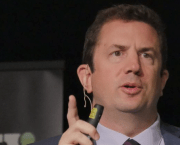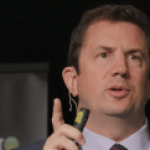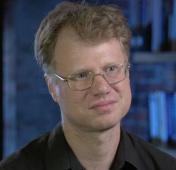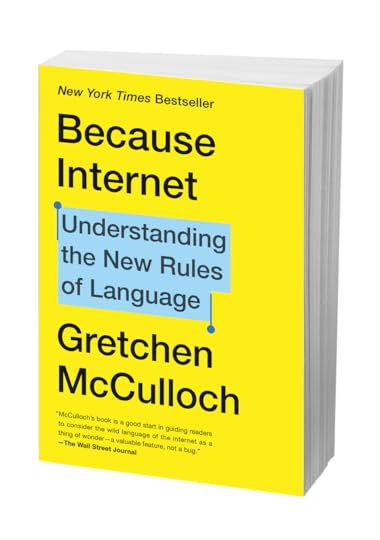David McRaney's Blog, page 14
January 29, 2021
YANSS 198 – The psychological mechanisms that led to the the storming of the Capitol, an event that sprang from a widespread belief in a conspiracy theory that, even weeks later, still persists among millions
Since 2016, psychologist Gordon Pennycook and his colleagues have consistently found that a lack of cognitive reflection is more correlated with believing and sharing fake news and conspiracy theories – false information spread through Facebook, and espoused by the president himself – than any other psychological phenomenon.
In this episode we explore how, why, and what can be done about it after taking a deep dive into some shocking statistics.
Download – iTunes – Stitcher – RSS – Soundcloud – Omny – Spotify
According to VOX: “In a survey fielded in the days after a group of President Donald Trump’s supporters stormed the US Capitol (January 8 to 11), 72 percent of likely Republican voters said they continue to question the presidential election results. Nearly three-quarters of Republicans, or 74 percent, said allegations of voter fraud have contributed to these concerns. Those are overwhelming majorities, but even among independents, 42 percent said they do not currently trust the election results.”

Gordon Pennycook is an assistant professor of behavioural science at University of Regina’s Hill/Levene Schools of Business. He is a member of the editorial board for Thinking & Reasoning and a consulting editor for Judgment and Decision Making. He studies misinformation any how is spreads through the modern information ecosystem.
Links and Sources
Download – iTunes – Stitcher – RSS – Soundcloud – Omny – Spotify
Examining false beliefs about voter fraud in the wake of the 2020 Presidential Election
How a Crisis Researcher Makes Sense of Covid-19 Misinformation
Transcript of an interview with Steven Novella
About half of Republicans don’t think Joe Biden should be sworn in as president
Meta-Analysis of Psychological Research on Conspiracy Beliefs
YANSS 197 – Steven Novella and Jesse Walker discuss the history and psychology of conspiracy theories
Download – iTunes – Stitcher – RSS – Soundcloud – Omny – Spotify
Over the last few years, this show has devoted many shows to the psychology behind what we saw in the Capitol in January 2021. So, in this episode, we re-listen to three interviews on conspiratorial thinking to gain some perspective.
In this episode we discuss the history, social impact, neuroscience and psychology behind conspiracy theories and paranoid thinking.

Joseph Uscinski is an associate professor of political science at the University of Miami. He studies public opinion and mass media, with a focus on conspiracy theories and related misinformation. He is the coauthor of American Conspiracy Theories and editor of Conspiracy Theories and the People Who Believe Them.

Steven Novella is a leader in the skeptic community, host of The Skeptic’s Guide to the Universe, and an academic clinical neurologist at Yale University School of Medicine. He blogs at Neurologica, Skepticblog, and Science-Based Medicine.

Jesse Walker is the books editor for Reason Magazine and author of the new book, The United States of Paranoia: A Conspiracy Theory. Walker’s articles can be seen in The New York Times, The Wall Street Journal, The Washington Post, and many others. He blogs at The Perpetual Three Dot Column.
Links and Sources
Download – iTunes – Stitcher – RSS – Soundcloud – Omny – Spotify
Transcript of the interview with Steven Novella
The Skeptic’s Guide to the Universe
The United States of Paranoia: A Conspiracy Theory
The Study of Conspiracy Theories
Conspiracy Theories Can’t Be Stopped
Meta-Analysis of Psychological Research on Conspiracy Beliefs
January 28, 2021
YANSS 197 – Steven Novella and Jesse Walker discuss the history and psychology of conspiracy theories
https://omny.fm/shows/you-are-not-so-... width=”100%” height=”180″ frameborder=”0″ title=”197 – Conspiratorial Thinking”>
Download – iTunes – Stitcher – RSS – Soundcloud – Omny – Spotify
Over the last few years, this show has devoted many shows to the psychology behind what we saw in the Capitol in January 2021. So, in this episode, we re-listen to three interviews on conspiratorial thinking to gain some perspective.
In this episode we discuss the history, social impact, neuroscience and psychology behind conspiracy theories and paranoid thinking.

Joseph Uscinski is an associate professor of political science at the University of Miami. He studies public opinion and mass media, with a focus on conspiracy theories and related misinformation. He is the coauthor of American Conspiracy Theories and editor of Conspiracy Theories and the People Who Believe Them.
 Steven Novella is a leader in the skeptic community, host of The Skeptic’s Guide to the Universe, and an academic clinical neurologist at Yale University School of Medicine. He blogs at Neurologica, Skepticblog, and Science-Based Medicine.
Steven Novella is a leader in the skeptic community, host of The Skeptic’s Guide to the Universe, and an academic clinical neurologist at Yale University School of Medicine. He blogs at Neurologica, Skepticblog, and Science-Based Medicine.

Jesse Walker is the books editor for Reason Magazine and author of the new book, The United States of Paranoia: A Conspiracy Theory . Walker’s articles can be seen in The New York Times, The Wall Street Journal, The Washington Post, and many others. He blogs at The Perpetual Three Dot Column.
. Walker’s articles can be seen in The New York Times, The Wall Street Journal, The Washington Post, and many others. He blogs at The Perpetual Three Dot Column.
Links and Sources
The Episode: Download – iTunes – Stitcher – RSS – Soundcloud
Transcript of the interview with Steven Novella
The Skeptic’s Guide to the Universe
The United States of Paranoia: A Conspiracy Theory

The Study of Conspiracy Theories
Conspiracy Theories Can’t Be Stopped
Meta-Analysis of Psychological Research on Conspiracy Beliefs
YANSS 196 – How scientists use art to better understand how minds struggle to share their inner worlds
Moira Dillon studies how “the physical world in which we live shapes the abstract world in which we think,” and in this episode we travel to her Lab for the Developing Mind at NYU to sit down and ask her a zillion questions about how the brain creates the reality we interact with, and how we attempt to communicate that reality to others through language, art, geometry, and mathematics.

Download – iTunes – Stitcher – RSS – Patreon – Soundcloud – Omny – Spotify

 Moira Dillon studies how the brain uses spatial reasoning to locate objects in her “round room” at NYU
Moira Dillon studies how the brain uses spatial reasoning to locate objects in her “round room” at NYUIn the show, we ask: How does an organism communicate what it is experiencing in a symbolic medium so that can transfer that information from one mind to another?
You will learn all about Dillon’s work studying children’s (and adults’) drawings, spatial reasoning inside her special “round room” at NYU, and “infants’ sensitivity to shape changes in 2D visual forms,” all of which illuminate like never before how we turn objective reality into our personal, and sometimes agreed-upon, abstract hallucinations.
Links and SourcesDownload – iTunes – Stitcher – RSS – Patreon – Soundcloud – Omny – Spotify
View this post on InstagramA post shared by David McRaney (@davidmcraney) on Dec 28, 2019 at 6:52pm PST
December 15, 2020
YANSS 195 – Tools for creating positive habits, making better decisions, and understanding your thoughts, feelings, emotions, and self
In this episode, mathematician Spencer Greenberg takes us through a tour of ClearerThinking.org, the website and company he created to answer the question, “Why do people make choices that they later come to regret?”

From the ClearerThinking.org Mission Statement:
“Fields like psychology, neuroscience, and economics have produced fascinating insights into this question in the last few decades through the scientific study of decision-making, habit formation, motivation, and cognitive biases.
Shortcomings of the human mind in these areas inflict significant costs on just about every individual, organization, and government. For example, cognitive biases – ingrained thought patterns that systematically distort our understanding of the world – harm our ability to make good, rational decisions about the things we care about.
Meanwhile, positive habits are vital for sustained progress towards long-term goals, but they can be difficult to form, and the best practices for permanently instilling them remain a matter of guesswork for most people.
Scientists have developed effective tactics for countering many of the problems identified by this research, but very few of us have integrated these insights and techniques into our personal and professional lives in a consistent way.
Our work is focused on closing this “last mile problem” by using high-quality research and evidence to build fun, interactive tools that help you understand yourself more deeply, form new positive habits, and make better decisions.”


Some Tests You Can Take:
How Rational Are You Really?Common MisconceptionsBelief ChallengerThe Decision AdvisorValue of Your Time CalculatorPolitical Bias TestThe Entrepreneur TestThe Intrinsic Values TestYour Primal World BeliefsLife Changing Questions

 Spencer Greenberg
Spencer GreenbergSpencer Greenberg is a mathematician who specializes in machine learning. In 2005, at the age of 22, he co-founded a quantitative money management firm, Rebellion Research, which applies machine learning to long term investing. Spencer also co-founded AskAMathematician.com, a mathematics question and answer site with about 50,000 monthly page views.
Spencer has lectured extensively on a wide range of subjects, including artificial intelligence, investing, entrepreneurship, rationality, psychology, and mathematics. He has spoken at Columbia Business School, the Stern School of Business, and the Trinity School, as well as conferences such as TradeTech, QuantInvest, Skepticon, Strata Ignite, TEDxBlackRockCity, and Predictive Analytics World. Spencer has appeared on CNBC, Bloomberg TV, Canada’s BNN and Hong Kong’s Phoenix television, and has been interviewed by the Wall Street Journal, the New York Post, and Germany’s GEO magazine.


Support the show directly by becoming a patron! Get episodes one-day-early and ad-free. Head over to the YANSS Patreon Page for more details.

Links and Sources
Download – iTunes – Stitcher – RSS – Spotify – Patreon – Soundcloud – Omny
YANSS 194 – How memes, text messaging, emojis, and internet culture are expanding the range of human expression and, ultimately, our minds
Our guest in this episode is Gretchen McCulloch, who is a linguist, but also, I’d say a MEME-ologist, evidenced by that the fact that in her New York Times Bestselling book, Because Internet: Understanding the New Rules of Language, she spends a good portion of the book tracing the history of memes and how we have used them all the way up to right now, which is part of her her overall exploration of how language itself has changed since the advent of text messaging, SnapChat, TikTok, emojis, gifs, memes, and the internet as a whole.
McCulloch explains how texting, emoji, apps, social media, and the meme economy are all expanding our abilities to communicate ideas and ~express~ ourselves to one another. So, if you still put periods at the ends of your texts and refuse to change your ways, you will definitely enjoy this interview, and if you fancy yourself some kind of memelord, this is certainly the episode for you
ff


Gretchen McCulloch is an internet linguist: she explores the language of the internet for the people of the internet. She’s the author of the New York Times bestselling book Because Internet: Understanding the New Rules of Language, which was published by Riverhead (Penguin) in July 2019 and has been reviewed in the New York Times, the New Yorker, theEconomist, TIME, the Atlantic, NPR, and Science Magazine. Because Internet was also named a Best Book of 2019 by TIME, Amazon, and the Washington Post.
McCulloch writes the Resident Linguist column at Wired and has also written for the New York Times, New York Magazine, Slate, the Washington Post, the Wall Street Journal, and The Toast. She has a master’s in linguistics from McGill University and has spoken at SXSW and EmojiCon. McCulloch is the creator of the daily linguistics blog All Things Linguistic, and the co-creator of Lingthusiasm, a podcast that’s enthusiastic about linguistics. She is Canadian and lives in Montreal, but also on the internet. You can follow her on Twitter @GretchenAMcC.


Because Internet: Understanding the New Rules of Language
From Riverhead Books (Penguin, US) and Harvill Secker/Vintage (Random House, UK), available now in paperback!
“Gretchen McCulloch is the internet’s favorite linguist, and this book is essential reading. Reading her work is like suddenly being able to see the matrix.” —Jonny Sun, author of everyone’s a aliebn when ur a aliebn too
Because Internet is for anyone who’s ever puzzled over how to punctuate a text message or wondered where memes come from. It’s the perfect book for understanding how the internet is changing the English language, why that’s a good thing, and what our online interactions reveal about who we are.
Language is humanity’s most spectacular open-source project, and the internet is making our language change faster and in more interesting ways than ever before. Internet conversations are structured by the shape of our apps and platforms, from the grammar of status updates to the protocols of comments and @replies. Linguistically inventive online communities spread new slang and jargon with dizzying speed. What’s more, social media is a vast laboratory of unedited, unfiltered words where we can watch language evolve in real time.
Even the most absurd-looking slang has genuine patterns behind it. Internet linguist Gretchen McCulloch explores the deep forces that shape human language and influence the way we communicate with one another. She explains how your first social internet experience influences whether you prefer “LOL” or “lol,” why ~sparkly tildes~ succeeded where centuries of proposals for irony punctuation had failed, what emoji have in common with physical gestures, and how the artfully disarrayed language of animal memes like lolcats and doggo made them more likely to spread.
GO HERE TO LEARN MORE AND BUY THE BOOK AND ENJOY LIFE ITSELF


Support the show directly by becoming a patron! Get episodes one-day-early and ad-free. Head over to the YANSS Patreon Page for more details.

Links and Sources
Download – iTunes – Stitcher – RSS – Spotify – Patreon – Soundcloud – Omny
December 14, 2020
YANSS 193 – Why we gossip, how much we do it, its major functions, and what life would be be like without it
More than half of all human communication is gossip. The majority of what we do when speaking face-to-face is trade information about people who aren’t in the room with us, and for the most part, according to our guest in this episode, that’s a good thing.
In this episode, psychologist Robb Willer explains why gossip is prosocial, and here’s an excerpt from his research into the topic:
“The widespread existence of cooperation is difficult to explain because individuals face strong incentives to exploit the cooperative tendencies of others. In the research reported here, we examined how the spread of reputational information through gossip promotes cooperation in mixed-motive settings.
Results showed that individuals readily communicated reputational information about others, and recipients used this information to selectively interact with cooperative individuals and ostracize those who had behaved selfishly, which enabled group members to contribute to the public good with reduced threat of exploitation.
Additionally, ostracized individuals responded to exclusion by subsequently cooperating at levels comparable to those who were not ostracized. These results suggest that the spread of reputational information through gossip can mitigate egoistic behavior by facilitating partner selection, thereby helping to solve the problem of cooperation even in noniterated interactions.”

 Dr. Robb Willer
Dr. Robb WillerRobb Willer is a professor of sociology, psychology, and organizational behavior and the director of the Polarization and Social Change Laboratory at Stanford University. He studies the social forces that bring people together, divide them, and shape their political attitudes.


Support the show directly by becoming a patron! Get episodes one-day-early and ad-free. Head over to the YANSS Patreon Page for more details.

Links and Sources
Download – iTunes – Stitcher – RSS – Spotify – Patreon – Soundcloud – Omny
YANSS 192 – Why we are unaware that we lack the skill to tell how unskilled and unaware we are
In this episode, we explore why we are unaware that we lack the skill to tell how unskilled and unaware we are.
The evidence gathered so far by psychologists and neuroscientists seems to suggest that each one of us has a relationship with our own ignorance, a dishonest, complicated relationship, and that dishonesty keeps us sane, happy, and willing to get out of bed in the morning. Part of that ignorance is a blind spot we each possess that obscures both our competence and incompetence called the Dunning-Kruger Effect.

 Dr. David Dunning
Dr. David DunningWhen you are unskilled yet unaware, you often experience what is now known in psychology as the Dunning-Kruger effect, a psychological phenomenon that arises sometimes in your life because you are generally very bad at self-assessment. If you have ever been confronted with the fact that you were in over your head, or that you had no idea what you were doing, or that you thought you were more skilled at something than you actually were – then you may have experienced this effect. It is very easy to be both unskilled and unaware of it, and in this episode we explore why that is with professor David Dunning, one of the researchers who coined the term and a scientist who continues to add to our understanding of the phenomenon.


Support the show directly by becoming a patron! Get episodes one-day-early and ad-free. Head over to the YANSS Patreon Page for more details.

Links and Sources
Download – iTunes – Stitcher – RSS – Spotify – Patreon – Soundcloud – Omny
Scientific Evidence That Self-Promoters Underestimate How Annoying They Are
20 Minutes of X-Factor Auditions
Ignorance and Surprise: Science, Society, and Ecological Design (Inside Technology)
Image Source: Picserver via Creative Commons 3 – CC BY-SA 3.0
October 19, 2020
YANSS 191 – David Eagleman discusses his new book, Livewired, exploring how technology can take advantage of brain plasticity to add new senses and expand subjective reality in ways never before possible
In this episode, we sit down with neuroscientist David Eagleman to learn how brains turn noise into signal, chaos into order, electrical spikes into meaning, and how new technology can expand subjective reality in ways never before possible.
In his new book, Livewired, Eagleman explores how brains come into the world “half baked” so they can create reality out of the inputs and experiences available. Thanks to that plug-and-play plasticity, not only can we return senses to those who’ve lost them, but add to anyone new senses that we have yet to imagine.


[image error]Dr. David Eagleman
From his official bio:
“David Eagleman is a neuroscientist and a New York Times bestselling author. He heads the Center for Science and Law, a national non-profit institute, and serves as an adjunct professor at Stanford University. He is best known for his work on sensory substitution, time perception, brain plasticity, synesthesia, and neurolaw.
He is the writer and presenter of the international PBS series, The Brain with David Eagleman, and the author of the companion book, The Brain: The Story of You.
Beyond his 100+ academic publications, he has published many popular books. His bestselling book Incognito: The Secret Lives of the Brain, explores the neuroscience “under the hood” of the conscious mind: all the aspects of neural function to which we have no awareness or access. His work of fiction, SUM, is an international bestseller published in 28 languages and turned into two operas. Why the Net Matters examines what the advent of the internet means on the timescale of civilizations. The award-winning Wednesday is Indigo Blue explores the neurological condition of synesthesia, in which the senses are blended. The Runaway Species, co-authored with music composer Anthony Brandt, explores the neuroscience and behavior behind human creativity.
Eagleman is a TED speaker, a Guggenheim Fellow, a winner of the McGovern Award for Excellence in Biomedical Communication, a Next Generation Texas Fellow, Vice-Chair on the World Economic Forum’sGlobal Agenda Council on Neuroscience & Behaviour, a research fellow in the Institute for Ethics and Emerging Technologies, Chief Scientific Advisor for the Mind Science Foundation, and a board member of The Long Now Foundation. He has served as an academic editor for several scientific journals. He was named Science Educator of the Year by the Society for Neuroscience, and was featured as one of the Brightest Idea Guys by Italy’s Style magazine. He is founder of the company BrainCheck and the cofounder of the company NeoSensory.
He was the scientific advisor for the television drama Perception, and has been profiled on the Colbert Report, NOVA Science Now, the New Yorker, CNN’s Next List, and many other venues. He appears regularly on radio and television to discuss literature and science.”
TWITTER: @davideagleman

[image error]
LIVEWIRED: The Inside Story of the Ever-Changing Brain
Outstanding popular science. – Kirkus (Starred Review)
“[D]elivers an intellectually exhilarating look at neuroplasticity…. Eagleman’s skill as teacher, bold vision, and command of current research will make this superb work a curious reader’s delight.” – Publishers Weekly (Starred Review)
“Since the passing of Isaac Asimov, we haven’t had a working scientist like Dr. Eagleman, who engages his ideas in such a variety of modes. “Livewired” reads wonderfully, like what a book would be if it were written by Oliver Sacks and William Gibson, sitting on Carl Sagan’s front lawn.” – Wall Street Journal
“The pages of LIVEWIRED are chock-full of mind bending ideas and dazzling insights. Eagleman’s infectious enthusiasm, his use of fascinating anecdotes, and his clear, effortless prose render the secrets of the brain’s adaptability into a truly compelling page-turner.” – Khaled Hosseini, author of The Kite Runner
“Fascinating work… recommended for readers interested in neuroscience, technology, and the intersection of the two.” – Library Journal (starred review)
“David Eagleman, the Jolly Sherlock Holmes of neuroscience, makes me believe that the universe of possibility required to create utopia is already housed in each of our brains. His knowledge and enthusiasm are intoxicating. His book demonstrates the principle about which he is writing; my mind has been changed by his words.” –
Russell Brand
“Livewired is terrific. If you have a mind, David Eagleman will boggle it for you.” – Hugh Laurie
“David’s a brilliant writer and thinker, and he knows more about how we tick and why we tick than anyone I know.” – Neil Gaiman, author
“I read David Eagleman’s magnificent new book about a month ago, and I haven’t stopped thinking about it since. Eagleman has (once again) permanently altered the way I experience my brain’s complex and creative dance with the outside world.” – Annaka Harris, author of Conscious
“An altogether fascinating tour of the astonishing plasticity and interconnectedness inside the cranial cradle of all of our experience of reality, animated by Eagleman’s erudite enthusiasm for his subject, aglow with the ecstasy of sensemaking that comes when the seemingly unconnected snaps into a consummate totality of understanding.”– Maria Popova, Brain Pickings

[image error]
Support the show directly by becoming a patron! Get episodes one-day-early and ad-free. Head over to the YANSS Patreon Page for more details.

Links and Sources
Download – iTunes – Stitcher – RSS – Spotify – Patreon – Soundcloud – Omny
YANSS 190 – How we can escape the psychological trap of learned helplessness
Stuck in a bad situation, even when the prison doors are left wide open, we sometimes refuse to attempt escape.
In psychology, learned helplessness is a state of mind that can develop if you try and fail, and then try and fail again. After a few rounds of learning in this way you start to believe that it’s not the situation, or the problem, or some kind of unfair disadvantage, or a bad roll of the dice that caused you to fail – but that it had something to do with you as a person, something that indicates you’d likely continue to fail again and again and again, so why bother? Once that pattern is established, you mistakenly stop trying, and even though success it right there, easy, yours for the taking, you don’t even make the attempt. Your brain has changed, you’ve learned a new routine, you’ve learned to be act as through you are helpless regardless of whether you really are.
Learned helplessness is one of darker aspects of human nature. Among all the ways we delude ourselves, it’s easily one of the most damaging and most invisible. In this episode, we explore this strange mental phenomena by speaking to three experts, each exploring a different way it harms us. You’ll learn how it keeps people in bad jobs, poor health, terrible relationships, and awful circumstances despite how easy it might be to escape any one of those scenarios.
The good news is that learned helplessness can be unlearned, and each expert in the show offers a different tactic for removing it from our lives and the lives of others.

[image error]
Support the show directly by becoming a patron! Get episodes one-day-early and ad-free. Head over to the YANSS Patreon Page for more details.

Links and Sources
Download – iTunes – Stitcher – RSS – Soundcloud – Omny – Patreon
Charisse Nixon in the Classroom YouTube Video
Learned Helplessness: Theory and Evidence
Martin Seligman: Learned Helplessness
Seligman’s Learned Helplessness
Coping strategies in the workplace: Relationships with attributional style and job satisfaction
Ellen Langer Nursing Home Study
Rats, Cancer, and Learned Helplessness
Photo: By Dudva (Own work) [CC BY-SA 3.0 (http://creativecommons.org/licenses/by-sa/3.0), via Wikimedia Commons
David McRaney's Blog
- David McRaney's profile
- 582 followers



